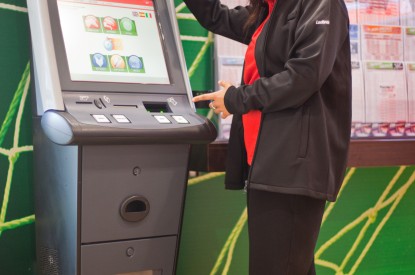Supplier News
UK – Ladbrokes reports a loss for the first time in ten years
By Phil - 24 February 2016
British bookie Ladbrokes made a loss of £43.2m in 2015, marking its first loss in a decade compared with a profit £37.7m the year earlier.
The year ended with group operating profit of £80.6m, which was slightly ahead of expectations with better results in UK Retail in Q4 and somewhat stronger operational trends being the key drivers to this performance.
The results were hampered by several key changes. The government introduced a new a 15 per cent point of consumption tax on gross profits and raised taxation on fixed-odds betting terminals from 20 per cent to 25 per cent, moves which Ladbrokes said resulted in a rise of £50m. It also highlighted shop closures, a £99m exceptional charge and £19.8m in merger costs caused by deal to buy Coral as costs as reasons behind the loss.
Jim Mullen, Chief Executive, commented: “2015 showed the impact regulation and taxation can have on our business. The increases in MGD and the introduction of POC tax account for c.£50m reduction in our full year operating profit. We also introduced new DCMS regulations around the playing of B2 games at stakes above £50 in April. This had a significant impact in reducing the higher stakes B2 play and has driven the reduction in stakes at £50+ by just under 70 per cent.”
In July, Ladbrokes announced an aggressive three year investment programme to build its UK Retail, Digital and Australian recreational customer base. The plan is based on restoring a culture of sporting passion and pride in what we do at Ladbrokes and in ensuring that the recreational customer and sports betting is front and centre.
Mr. Mullen explained: “After a short and intense internal review, it was clear that we needed to change the way we ran the business, build scale, respond faster to the customer and create a sense of urgency across the business. The plan was not without challenges and came at a cost as we sought to address urgently the need to invest more heavily in the business, with an inevitable and significant reduction in our profit expectations and cutting the dividend to finance our strategy for growth. The fall in operating profit in 2015 highlights the reality of our situation, the significant burden of c.£50m increased tax and regulation on our industry and the financial impact of delivering the plan. It is pleasing that after two quarters of execution of our plan, we can report progress. We take encouragement that the customer metrics and revenue growth in H2 demonstrate a good response from our customers to our focus on people, product and promotions and reflect positively on some of the cultural and operational changes that have taken place. The challenge for Ladbrokes is to build on this start and remain intensely focused on reaching or exceeding the 2017 financial targets we set out in July.”
He pointed with optimism to the fact that its self-service betting terminals were delivering growth in the UK, that football betting was up and that the retail team was delivering strong Multi-channel growth.
Ladbrokes also highlighted continued strong performance in its machine product. The key driver in this growth has been through increased play on lower stake slot games. “We have grown the percentage of gross win from slots from 33 per cent in Q4 2014 to 40 per cent in Q4 2015,” Mr. Mullen explained. “This has been a key part of our machine strategy as we move away from higher stake content and focus on lower value staking games. We launched 27 new slot games in the year compared to just five casino B2 games. Within our machine performance we also complied with all the new DCMS regulations on £50+ staking which saw a 68 per cent reduction in that form of play.”
In Digital in Q4, increased marketing delivered more customers and more staking with Ladbrokes.com net revenue up over 25 per cent and Australia, where the business has gone from strength to strength, up over 75 per cent.
“The full year figures reflect the costs needed to undertake significant investment to deliver the strategy as well as facing circa £50m of increased taxation,” Mr. Mullen added. “While it is pleasing to report that after two quarters we have made a good start, we are only at the beginning of the journey. Therefore, 2016 will see the same focus on winning more recreational customers, excellent operational delivery and a performance driven approach as the basis for delivering on our clear 2017 financial targets.”


